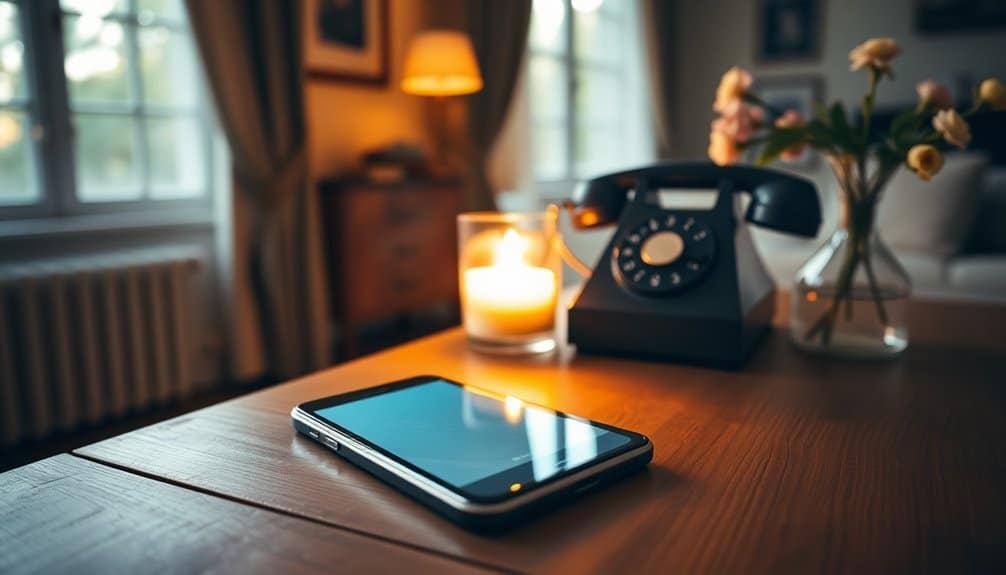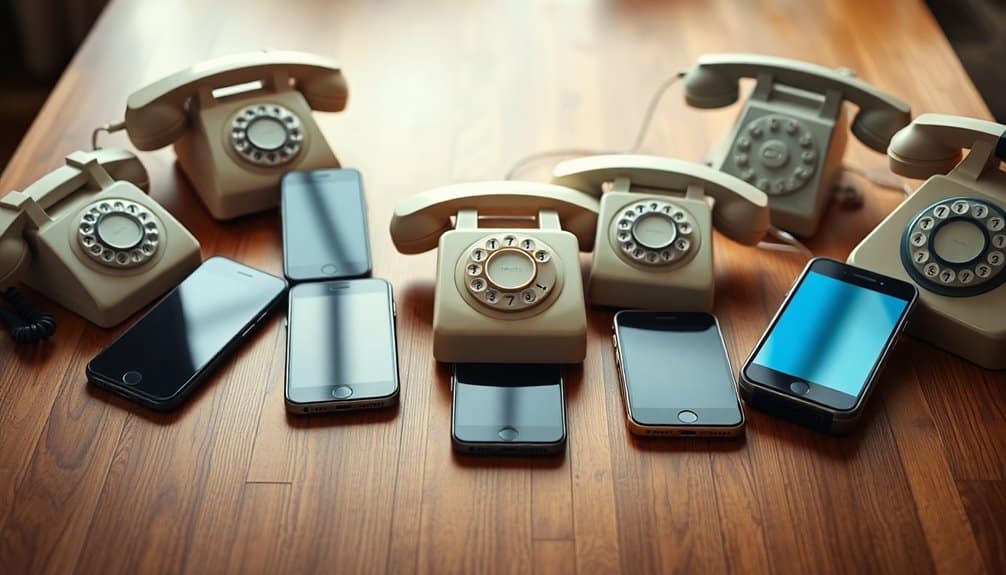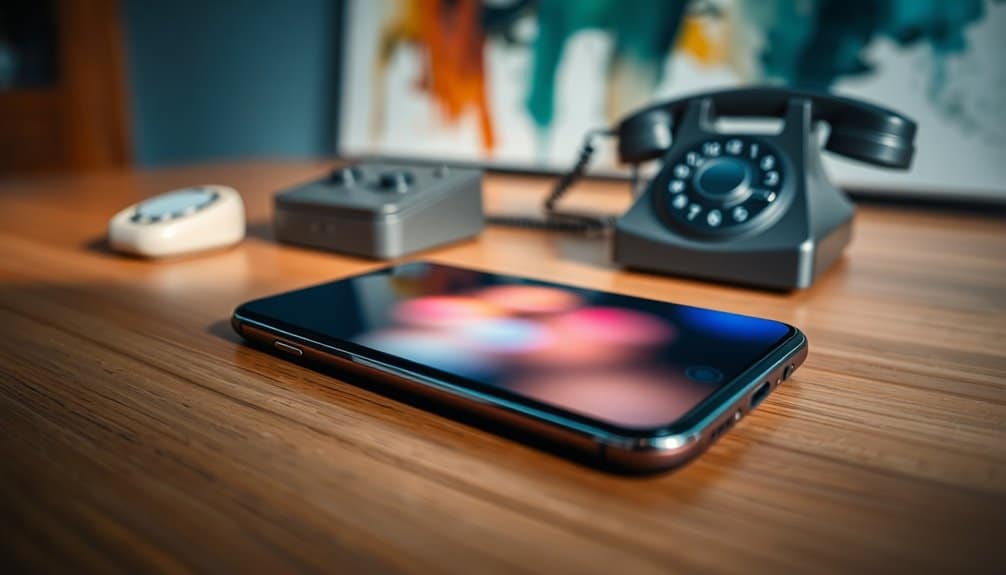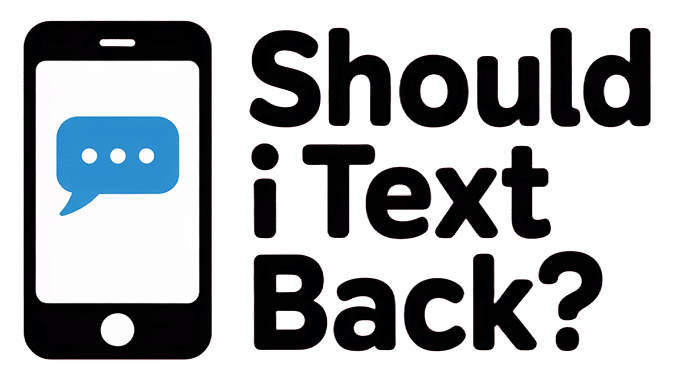When to Transition From Texting to Calling

So, when should you ditch the text and pick up the phone? If things get complicated or emotions are running high, that’s your cue! Calls are perfect for urgent stuff when waiting for replies feels like watching paint dry. Also, if there’s a chance for misunderstandings, just call! It’s like giving your convo a boost—more feelings, less confusion. Try to suggest a call when it feels right. Stick around, and you’ll get more tips on smooth switches!
Understanding Communication Preferences by Age

When you think about how we communicate, it’s pretty wild to realize that age plays a huge role in our preferences!
The Silent Generation loves formal, written messages and prefers face-to-face chats or phone calls. They value respect and clarity, making conversations feel like a mission briefing. Effective communication between age groups leads to higher productivity and employee satisfaction.
Millennials, on the other hand, are all about texting—89% of them prefer it! They want quick replies, kind of like a game of verbal ping-pong.
Then there’s Gen Z, who thrives on visuals and quick messages, often using emojis like they’re punctuation marks!
Situational Factors Indicating a Shift to Calls
You’ve got the hang of figuring out who prefers what kind of communication, but sometimes, you just know it’s time to switch gears.
If you’re dealing with an urgent or complex issue, a call is way better than a long text. Also, if your friend’s texts are getting shorter or they’re not replying quickly, it might be time to dial in. You’ll get a clearer answer, and let’s face it, some things just need that personal touch!
If you’re chatting about something sensitive, a voice call adds intimacy that texts can’t provide.
And when life gets noisy or chaotic, a call cuts through the clutter. So, when in doubt, pick up the phone and keep it real!
Social and Psychological Reasons to Call
Although texting is super convenient, nothing beats the warmth of a good old-fashioned phone call, especially when you want to connect on a deeper level. Hearing a loved one’s voice can feel like a hug you didn’t know you needed.
Calls let you share emotions in real-time, making it easier to comfort each other. Plus, they help reduce anxiety—who knew chatting could be so stress-busting?
If you’re worried about awkward silences, don’t be! Most folks find calls less awkward than they think.
Frequency of Communication: Texts vs. Calls
Texting and calling might seem like two sides of the same coin, but they serve different purposes in our everyday chatter. You probably send or receive around 32 texts each day, while making only about 6 calls. Crazy, right?
If you’re in the 18-24 crowd, you’re likely sending a whopping 109 texts daily! Texting is quick and easy, perfect for sharing memes or saying “What’s up?”
But if your message needs a bit more depth, like planning a surprise party, picking up the phone might be best. Remember, while texting is fun and speedy, don’t shy away from a call when it counts.
Sometimes, hearing a friend’s voice is way more comforting than a text bubble.
Technological Influences on Communication Choices

When you think about how you communicate, it’s pretty wild to see how technology shapes your choices.
You probably notice that texting is the go-to for most of your friends, especially those under 35. With smartphones in hand, it’s like everyone’s glued to their screens, using instant messaging instead of emails or calls.
And hey, that’s not a bad thing! If you’re tech-savvy, switching from texting to calling can feel like a breeze.
Just remember, social media and AI are making us expect quick replies, so don’t be surprised if folks prefer a text over a chat.
Next time you’re unsure, think about your comfort level and the situation. Sometimes, a call can be just what you need!
Recognizing Complex or Sensitive Discussions
Sometimes, you just know when a text isn’t going to cut it. If you’re dealing with something complex or sensitive, picking up the phone might be your best bet.
Imagine trying to explain your feelings about a tough situation through a screen—yikes! You miss out on tone and empathy, which are super important.
Plus, when emotions are running high, a call lets you chat back and forth, making it easier to connect. Remember, sending a text about a breakup or a big decision can lead to misunderstandings.
The Role of Urgency in Communication Mediums
Have you ever found yourself in a situation where you really needed to get a message across quickly?
Maybe your friend’s car broke down, or you’re running late for a big meeting. In these moments, urgency kicks in, and your choice of communication medium matters a lot!
Here are three quick tips to keep in mind:
- Text for Quick Updates: If it’s a simple message, a text works wonders. You’ll likely get a speedy reply!
- Call for Urgent Matters: For pressing issues, pick up the phone. It’s more immediate and personal.
- Evaluate Your Task: Think about how important the message is. Urgent tasks deserve quicker, richer media like calls.
Trust me, choosing the right medium can save you a lot of stress!
Strategies for Making the Transition Smoothly
Making the jump from texting to calling can feel a bit awkward, right? To make it smoother, start by setting the stage. Just say, “Hey, can we chat on the phone? I’d love to talk!” This helps avoid any surprises.
If it’s a sensitive topic, let them know why a call is better. Timing’s key too—pick a moment when they’re not juggling a million things.
Respect their preferences; if they’re more of a text person, maybe suggest a quick call instead of a long chat. And hey, ask if it’s a good time to call! This shows you care about their schedule.
With these tips, you’ll feel more confident making that leap!
Frequently Asked Questions
How Can I Improve My Phone Call Skills?
To improve your phone call skills, practice active listening, speak clearly, and maintain a warm tone. Prepare key points beforehand and minimize distractions, ensuring you engage fully and effectively during each conversation.
What Should I Do if I Feel Anxious About Calling?
Did you know that about 10-15% of adults in Britain experience phone call anxiety? To cope, try preparing notes, practicing deep breathing, or starting with low-stakes calls to gradually build your confidence.
Are There Situations Where Texting Is Always Better Than Calling?
Absolutely, there are situations where texting’s advantages shine. You’ll find it ideal for quick inquiries, non-intrusive communication, and when you want to provide customers the convenience to respond at their own pace without pressure.
How Can I Gauge if Someone Prefers Calls Over Texts?
To gauge someone’s preference for calls or texts, pay attention to their response times and communication style. If they often reply quickly to texts and keep messages short, they likely prefer texting over calling.
What Are Common Phone Call Etiquette Tips to Follow?
To guarantee effective communication, greet warmly, listen attentively, maintain a positive tone, and respect time boundaries. Stay focused, avoid distractions, and express appreciation. These phone call etiquette tips foster professionalism and build strong relationships.
Conclusion
So, whether you’re texting your BFF or debating whether to call your crush, just remember: sometimes, a call can work wonders! It’s like switching from a snack to a full meal—more satisfying and way more personal. When things get serious or urgent, don’t hesitate to pick up the phone. Keep it light, be yourself, and you’ll nail that chat. So, go on, make that call—it could be the best decision you make today!






